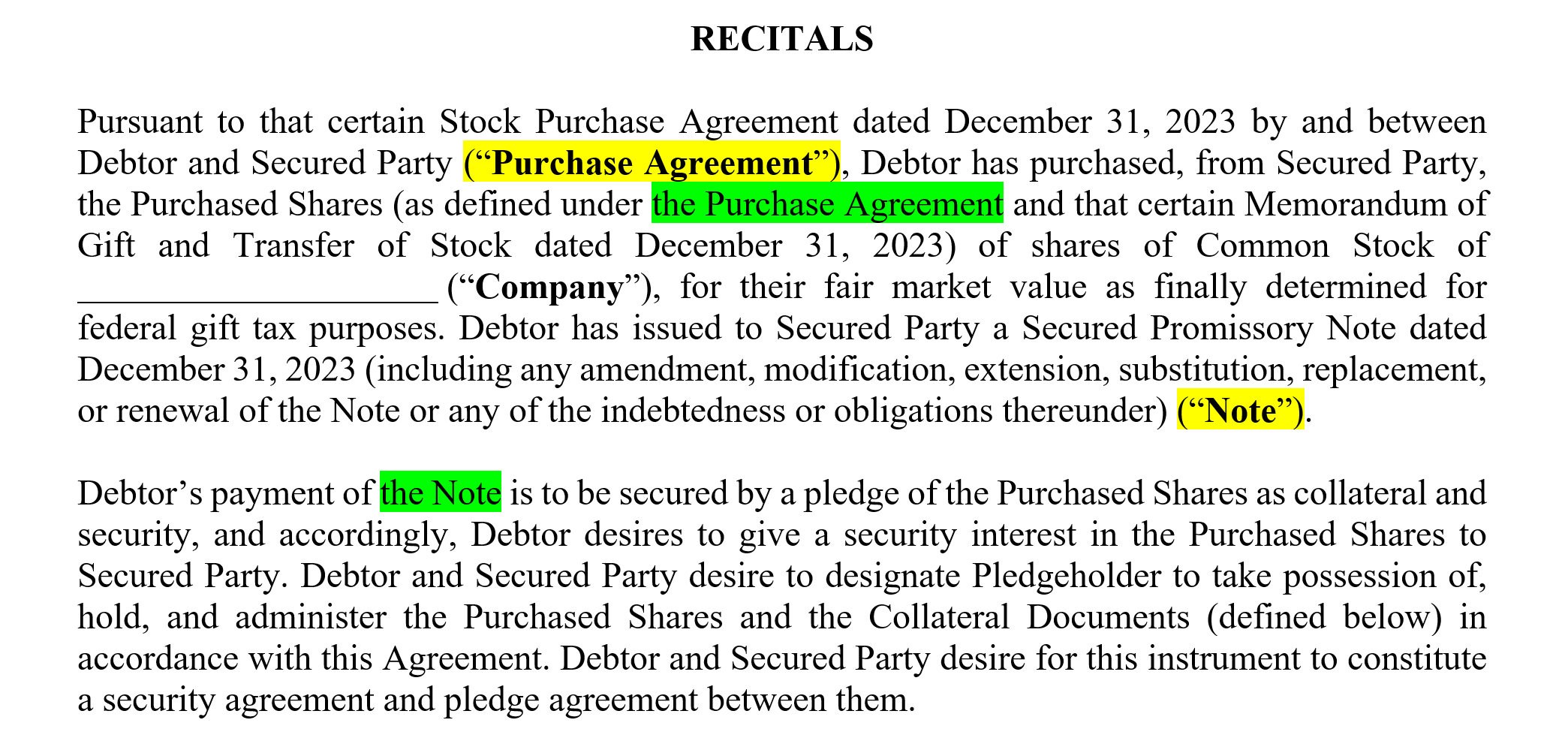
This post nerds out on defined-term protocols. Specifically, should one use, or not use, the (or a or an) in defined-term parentheticals for defined terms that otherwise use the (or a or an)?
MSCD says “include in a defined-term parenthetical the definite article the or the indefinite article a (or an), as appropriate. An article isn’t necessary unless the defined term is a common noun.” In other words, do this: (the “Xylophone“).
But a reader asked me what I thought of omitting the in this context. They sent me an example of a contract that does that; the image at the top of this post is a screenshot from that contract. I’ve highlighted in yellow two defined-term parentheticals that don’t use the; I’ve highlighted in green instances of those defined terms used with the.
What’s my take on this? The Chicago Manual of Style endorses omitting the when you state an abbreviation in parentheses. One example it offers (in 10.3) is Among recent recommendations of the Federal Aviation Administration (FAA) are …
So for contracts, we should be OK with omitting the in this context, right? Well, not so fast. Contract definitions are more involved than the abbreviations considered in The Chicago Manual of Style—when the defined term you’re creating is farther from the core component of the definition instead of coming right after it, adding the makes the defined-term parenthetical less awkwardly clipped. That’s also the case when you clarify the scope of the definition, thereby adding text before the defined term in the defined-term parenthetical (see this 2022 blog post). And the practice in contracts of putting quotation marks around a defined term when you define it makes it clear that the is a sideshow.
Furthermore, if a contracts convention is unobjectionable, leave it alone: with so much dysfunction to fix, nothing is gained by making additional work for ourselves. In my experience (although I haven’t attempted to quantify it), defined-term parentheticals featuring the greatly outnumber those where the has been omitted. That’s why I didn’t think to address in MSCD the no-the scenario.
So I plan on sticking with (the “Xylophone“).
(By the way, if you came to this post thinking it was about using the with party-name defined terms that consist of a common noun, that’s this post!)

I was curious if you have an opinion on whether punctuation following a defined term should go inside or outside of the quotation mark in the US. For example, would you endorse usage as follows: collectively referred to herein as the “Parties.” Or would you endorse the following: collectively referred to herein as the “Parties”.
It seems to me that this can’t affect meaning either way and can be avoided by using parenthetical but interested in your esteemed opinion either way.
Hi Karl. Because with integrated definitions the defined term is created in parentheses, this issue doesn’t arise. (And I’d never create the defined term Parties!)
If a party name is ‘Consolidated Widget, Ltd.’, is ‘Widget’ a party-name defined term that consists of a common noun, requiring the definite article, as in ‘the “Widget”‘?